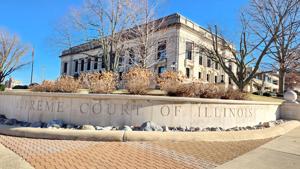(The Center Square) – The attorney representing 14 local public safety pension funds challenging an Illinois state law consolidating all funds outside of Chicago into two says the law is unconstitutional.
In 2019, Gov. J.B. Pritzker enacted the measure consolidating about 650 first responder pension funds into a fund for police and a separate one for firefighters. The idea was to maximize investment returns for all funds.
The measure was challenged and is now in front of the Illinois Supreme Court.
“The Illinois Police Officer’s Pension Investment Fund (IPOPIF) is not surprised that the Illinois Supreme Court has agreed to hear arguments regarding the constitutionality of [the law],” said a statement from IPOPIF. “To date, 332 of the 357 [police funds] funds have transferred approximately $9.1 billion in assets to the IPOPIF consolidated fund.”
The Illinois Firefighters’ Pension Investment Fund’s annual comprehensive financial report for fiscal year 2022 said there was a total of $8 billion in assets. Four local firefighter pension funds remain unconsolidated, the report said.
Amanda Hamilton with Konicek & Dillon represents the local pension funds suing the state.
“We take issue with the fact that this legislation significantly diminishes, if not eliminates, the effect of each participant’s vote, that is to say their right to decide who controls these funds, who manages these funds,” Hamilton told The Center Square.
Hamilton argues the law violates the Illinois Constitution.
“We also take an issue with the fact that it forces the individual funds to bear the transfer and transition costs,” she said. “We don’t think that’s appropriate either.”
The police fund plaintiff groups are from Arlington Heights, Aurora, Champaign, Chicago Heights, Chicago Ridge, Cicero, DeKalb, Elgin, Elmhurst, Evanston, Mokena, Palos Heights, Rantoul, Villa Park, Wood Dale and Woodridge. The firefighter fund plaintiff groups are from Maywood and Pleasantview.
Hamilton argued the individual funds’ power is severely diluted by the law, like being unable to change trustees if funds are not performing well, among other things.
“Some funds that are doing very, very well are now going to be lumped in with some funds who have been doing very, very poorly and we just don’t think it’s fair to take away their voting rights,” she said.
With two lower courts siding with the state in the challenge, Hamilton said it is going to be tricky and nuanced. But, she’s excited and optimistic.
“I’m really eager to get the Illinois Supreme Court’s take on it because they are the final authority,” Hamilton said.
The plaintiffs’ opening brief is due to the Illinois Supreme Court June 28.
The Illinois Municipal League said it believes the law will be upheld, “as it has been twice already, and will eventually yield to better financial results for both pension beneficiaries and taxpayers.”







